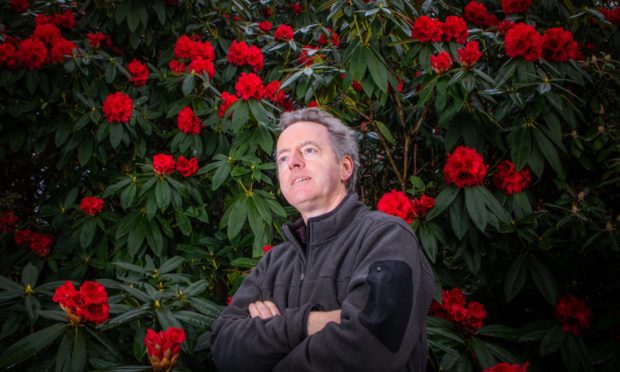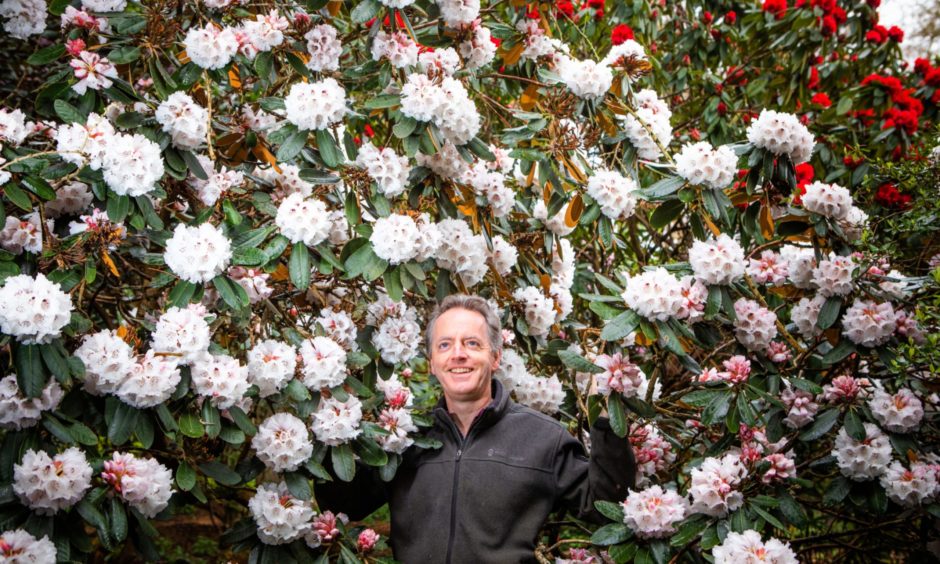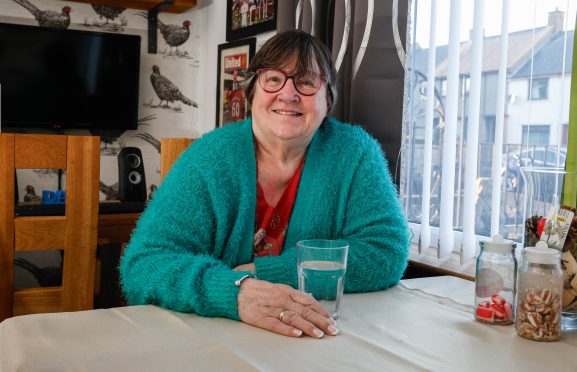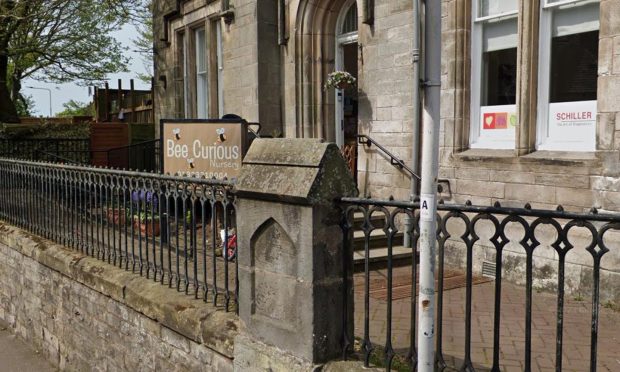A major Perthshire horticultural firm say their nursery is “in jeopardy” after being told they can no longer export plants grown in British soil to the EU and Northern Ireland.
Glendoick Garden Centre exports rhododendrons, azaleas and other plants that thrive in acidic soil from its Carse of Gowrie nursery.
But the A90 business’s crucial exports to European traders are under threat thanks to environmental rulings which apply since Brexit meaning UK soil is no longer accepted in Europe.
Glendoick grow more than 80% of their rhododendrons and azaleas outside in nursery beds and as industry leaders, say they’re convinced that better and more easily-established plants grow in open ground.
A third of the Tayside firm’s plants are exported and thousands of pounds worth are sent to Ireland alone.
However, horticulturalists like Glendoick will be unable to export plants to the EU and NI if they have been grown in British soil. Growers have been given two options to work around this.
The first, washing all soil off the roots of plants designated for export, would prove fatal to most crops and simply isn’t an option for owner Ken Cox.
Alternatively, growers are being advised by a Scottish Government agency to cultivate the plants in either pure peat or coir – coconut husks imported from India and Sri Lanka.
Following consistent government and industry guidance from 2010, Glendoick and others have reduced or completely phased out using peat and Ken says whatever way he grows, he’ll be contradicting one legislator.
As a result, there is currently no feasible way for Glendoick to export their plants to the EU or Northern Ireland.
Mr Cox said: “Glendoick have become one of Europe’s best known specialist nurseries since it was founded in 1953, supplying all the major gardens, botanical institutions, nurseries and private customers.
“It seems that all this is in jeopardy. Glendoick’s specialist nursery is quite likely to be unsustainable if we cannot access our main markets.
“Our largest customers in recent years have been in Ireland. It could all so easily have been avoided if we had stayed in the single market.
“It’s mind-boggling. We’re collateral damage. Companies have contracts signed which wont be able to be sent.
“The dilemma is do we try and change to the EU rules or UK rules which contradict each other.
“This agreement isn’t reciprocal. We still import EU plants as we did and we’ve missed out, like we’re on the back of the seed potato legislation.”
In 2019, UK firms exported £76m of ornamental plants and Northern Ireland imported 60% of its plants from Great Britain.
MSP John Swinney wants the latest trade barrier torn down by the UK government.
He said: “Ken and his team have had the rug pulled from under their feet with no warning, and their future prospects have been sacrificed at the altar of Brexit.
“As a matter of urgency, the UK Government must take steps to address this imbalance and secure the long-term viability of this industry.”
The new sanitary and phytosanitary requirements on goods moving from Britain to NI were put in place by the UK Government as part of its approach to the Northern Ireland Protocol to maintain Ireland’s status as a single epidemiological unit and will come into effect on April 1.
A department of environment, food and rural affairs spokesperson said: “We are working closely with the horticulture industry to ensure they can take advantage of the opportunities leaving the EU brings, and overall businesses are adjusting well to the new rules and continue to trade effectively.
“Alongside other measures, we have put in place the Movement Assistance Scheme to support and assist traders moving plants, plant products, and agrifood from Great Britain to Northern Ireland, meaning that businesses do not face new direct costs from certification requirements.”
A Scottish Government spokesperson said: “This is another example where our hard working businesses, producing good Scottish products, are placed at a disadvantage by us leaving the EU and the single market.
“We are asking the UK Government to urgently set out plans on how to compensate businesses impacted by this. In order to rectify this, we would expect the UK Government to ask the EU to lift prohibitions on soil and growing media.”





